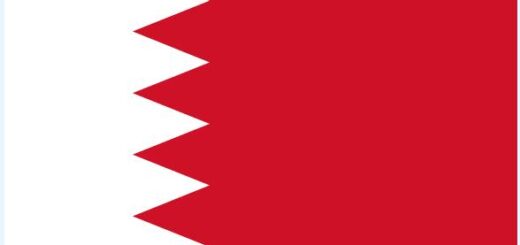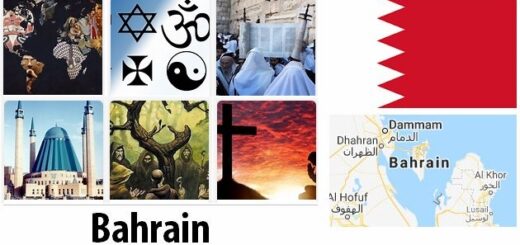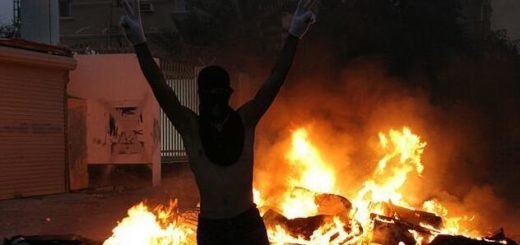History and Politics of Bahrain
History of Bahrain
In the 4th-3rd millennium BC. the territory of modern Bahrain was the center of one of the major trading empires of the ancient world – the state of Dilmun. In 1500-1000 BC the state of Dilmun fell under the blows of the Chaldeans, and ca. 600 BC it was completely absorbed by the New Babylonian kingdom.
In the 2nd century BC. Bahrain turned into an independent Arab state centered on the island of Aval (now Bahrain), which by the 1st century. BC. became not only an administrative, but also a major trade and transit center. In the 4th-6th centuries. Bahrain was under the rule of Sasanian Iran, and in the 7th-9th centuries. became part of the Arab Caliphate. Since 894, Bahrain has been the center of an independent Karmatian state, which has embraced almost all of Eastern Arabia. In 1082, after the troops of the Baghdad Caliph Qaim defeated the Karmatian militia, Bahrain became part of one of the provinces of the Abbasid Caliphate. In 1320 Bahrain was included in the independent Arab state of Hormuz. In 1487, the Bahraini archipelago was captured by the Arab tribes of Oman. After about 36 years, they were forced out by the Portuguese, who retained control of the islands until 1602.
In the 1st floor. 17th century After the expulsion of the Portuguese by the Shah of Iran Abbas I (1588-1628), Bahrain came under the control of Safavid Iran. At the very beginning 18th century From Nejd (Arabian Peninsula) the Uteiba tribe moved to the coast of the Persian Gulf, led by such large clans as Al Khalifa, Al Sabah, Al Jalahima. One of the divisions of the Uteiba tribe, which was under the leadership of the Al Khalifa clan, migrated to the Qatar peninsula and settled in the village of Zubara, on the northeast coast of Bahrain Bay. All R. In the 1770s, already being the ruler of Zubara, a representative of the Al Khalifa clan, Sheikh Mohammed (1767–80), obtained from the Iranian ruler Kerim Khan the lease of the Bahraini archipelago neighboring Qatar for a period until 1782. So the representatives of the Al Khalifa clan first appeared in Bahrain.
From the beginning 19th century The Persian Gulf becomes the object of British expansion. In 1871, London officially notified the governments of European countries that the British Parliament had decided to establish a protectorate over Bahrain. Thus, Bahrain became part of the world’s largest colonial empire.
In con. 1920s active penetration into the archipelago of American oil monopolies began. Thus, in 1929, the American oil company Bahrain Petroleum Company of California (BAPCO) was established in Bahrain. In 1932, the first oil gusher was hammered in the archipelago, and the next year commercial oil production began.
Bahrain’s independence was proclaimed on August 14, 1971. In May 1973, Bahrain’s first constitution came into effect. The current ruler of Bahrain, Sheikh Hamad bin Isa Al Khalifa, came to power on March 6, 1999 after the death of his father, Sheikh Isa bin Salman Al Khalifa (1961–99). On February 14, 2002, the emir signed the law on amendments to the existing Constitution. In accordance with the signed law, the emirate was transformed into a constitutional kingdom, and the Emir of Bahrain himself was proclaimed king.
State structure and political system of Bahrain
The Kingdom of Bahrain is a sovereign Arab Islamic state with a monarchical form of government (constitutional hereditary monarchy). The 1973 Constitution is in force. Check equzhou for political system of Bahrain.
Administrative division – five provinces: Manama, Muharraq, Central, Southern and Northern provinces. The largest cities (thousand people): Manama, Al-Muharraq (91.939), Ar-Rif (79.985). The supreme body of legislative power is a bicameral parliament, consisting of a Consultative Council (Majlis ash-shura) and a chamber of deputies. The highest body of executive power is the Council of Ministers. The head of state and head of the highest legislative body is King Hamad bin Isa Al Khalifa. The head of the supreme body of executive power is Prime Minister Sheikh Khalifa bin Salman Al Khalifa. Power in the state is hereditary through the Al Khalifa family. She passes from father to eldest son. The King appoints the Prime Minister and the Council of Ministers, he also appoints the members of the Consultative Council (Majlis Ash-Shura). The lower house of parliament (chamber of deputies) is elected by direct elections. Legislative and executive power of administrative units (5 provinces of the country) is exercised within the framework of 5 municipal councils. Check homeagerly for democracy and human rights of Bahrain.
Political parties are prohibited in Bahrain. Nevertheless, several political groups and organizations operate in the state: the Islamic Society for National Accord (IONS) (the largest Islamic Shiite opposition group in Bahrain), the Progressive Democratic Forum (PDF), the Islamic Democratic Society of the Arab Center (IDODAC), the National Society for Democratic Action ( NODD).
Bahrain’s foreign policy activity is concentrated mainly in the sphere of regional relations and does not go beyond the political initiatives put forward by the Cooperation Council for the Arab States of the Gulf. At the same time, Bahrain has close contacts with Western countries, especially the United States, with which Bahrain has a defense cooperation agreement.
The armed forces of Bahrain consist of the Ground Forces (including air defense forces), the Navy, the Air Force, the Coast Guard, and the National Guard. The total number of the Armed Forces is 12,160 thousand people. (2001).
Bahrain has diplomatic relations with the Russian Federation (established with the USSR in 1991).



